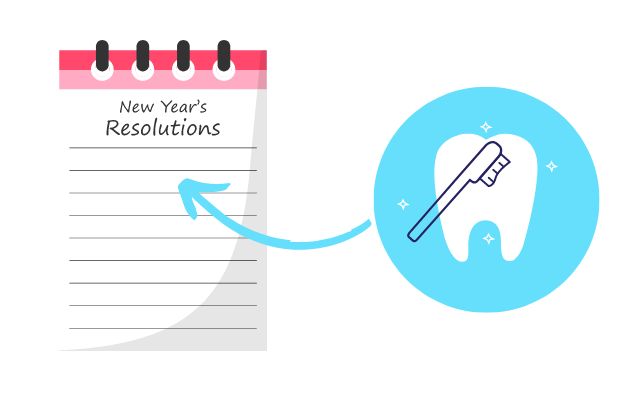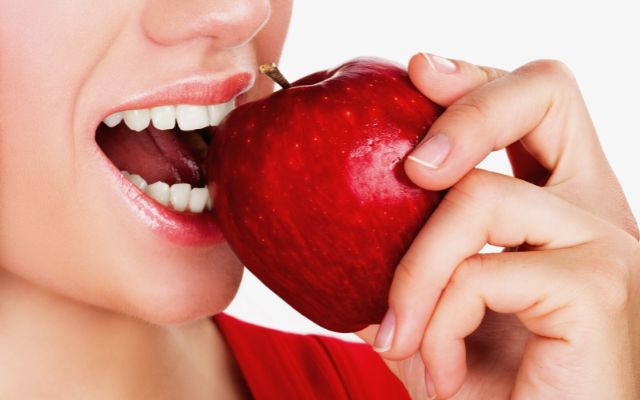Dental New Year’s Resolutions: Overview Teeth Health Resolutions
Dental New Year’s Resolutions: The new year is an excellent time to establish new habits that will keep your mouth, teeth, and smile healthy for decades. In this article, I will show you the details about some resolutions that are so important to your dental health as well as other useful information.
Let’s get started!
Overview of Dental New Year’s Resolutions


The majority of New Year’s resolutions focus on bettering one’s health and financial situation. You will create a win-win situation for both your oral health and your finances if you resolve to improve your dental care. It is true that a dollar saved is a dollar earned, and there is no better approach to avoiding dental problems than to avoid them in the first place.
Possibility for Change: The New Year is an excellent opportunity to commit to making great life improvements. If you incorporate adjustments into your routine, they can quickly become habits. These habits can become ingrained in your behavior and routine over time.
You have the ability to make life-altering decisions, and the same holds true for your oral health. Enhancing your oral hygiene regimen, avoiding risky habits, and consuming a balanced diet will have a significant impact on your long-term dental health.
Strengthen Your Habits: With regular practice, a dreaded task such as interdental cleaning can transform from a low point in your day to something you look forward to. As you clean between your teeth and brush regularly, you may be surprised to discover that your gums become less sensitive, that you bleed less, and that you like the sensation of a uniquely clean grin.
Some New Year's resolutions for Dental Health
The start of a new year is an excellent time to adopt new oral hygiene practices that will keep your mouth, teeth, and smile healthy for years to come.
Our specialists have compiled a list of some dental resolutions to help you improve your oral health in the coming year.


Twice Daily Brushing
Tooth Brushing twice a day is one of the most critical practices for keeping excellent oral health. However, did you know that less than half of Australians wash their teeth twice daily?
Follow these suggestions to develop the routine of brushing your teeth at least twice daily:
- Use a toothbrush in the morning to remove any plaque that may have accumulated overnight.
- Brush before going to bed to remove any food particles or trash.
- Do not clean your teeth too soon after eating or drinking (aim to wait at least 30 minutes but go ahead and rinse your mouth with water in the meantime)
- Utilize a grain-sized amount of fluoride toothpaste.
- Use circular strokes to scrub softly.
Daily Flossing
What is equally as vital as daily tooth brushing? Flossing. Without flossing, it is easy for bacteria to accumulate in the spaces between teeth. This accumulation can convert into plaque, resulting in periodontal disease, tartar, and tooth decay.
Before you clean your teeth in the morning and before you go to bed at night, you should floss. To correctly floss, hold the floss between your index fingers and clean between each tooth by gently moving the floss up and down and into the gumline. Ask your dentist about a water flosser or floss threader if you have difficulty flossing frequently.
Regularly Replace Your Toothbrush
How long have you used your existing toothbrush? Has it been more than three months since the last replacement, or do you not recall? If so, you should replace your toothbrush immediately.
Here are a few suggestions for selecting a new toothbrush:
- Select a toothbrush or toothbrush head with soft bristles that fits your mouth comfortably.
- If you find it difficult to use a manual toothbrush, you may want to upgrade to an electric toothbrush to see if it will make brushing easier or more comfortable (otherwise a manual toothbrush is just as effective)
- Obtain toothbrush advice from your dentist if you are uncertain as to which toothbrush is appropriate for you.
Here are some replacement guidelines for your toothbrush:
- Each three months
- When the bristles are worn or broken
- If you have recently been ill If you are unhappy with the toothbrush you are currently using
Consume A Diet Comprised Of Good For The Teeth Foods


Is it more than six months since your previous dental examination? Immediately arrange a hygiene appointment if this is the case.
The key to maintaining a healthy smile and preventing significant oral health concerns is prevention and early treatment.
Regular dental visits give several benefits. These examinations are a simple and efficient method for removing tartar and plaque, monitoring dental health, identifying any concerns, and receiving early and appropriate treatment for any disorders. Every six months, you should visit your dentist for a checkup.
Urgent Care Dentist Near Me
Despite the fact that excellent preventative care can aid in preventing certain tooth diseases, dental emergencies can sometimes occur. In dental emergencies, time is of the essence in order to prevent harm.
Certain emergency departments and urgent care dentistry clinics are open 24 hours a day, seven days a week in order to accommodate patients with urgent requirements.
The emergency dentists at Spring Orchid Dental Emergency Clinic in Bassendean are able to assist with dental emergencies and other oral health concerns.
FAQs about Dental New Year’s Resolutions
Modern materials are more durable, flexible, and aesthetically identical to natural teeth. Additionally, digital dentistry has made computer simulation and design easier than before. Thanks to digital x-rays and laser dentistry, accuracy has also been substantially enhanced.
Since those early days, dentistry has progressed substantially. People now have access to toothbrushes, antiseptic mouthwash, and fluoride mouthwash for everyday oral hygiene. Anesthesia is now available to dentists to alleviate pain during dental treatments. Electric drills are used to remove cavities and file teeth.
Dentists manufacture crowns, inlays, onlays, fixed partial dentures, aligners, occlusal devices, and implant surgical guides using intraoral scanners to create digital impressions.





